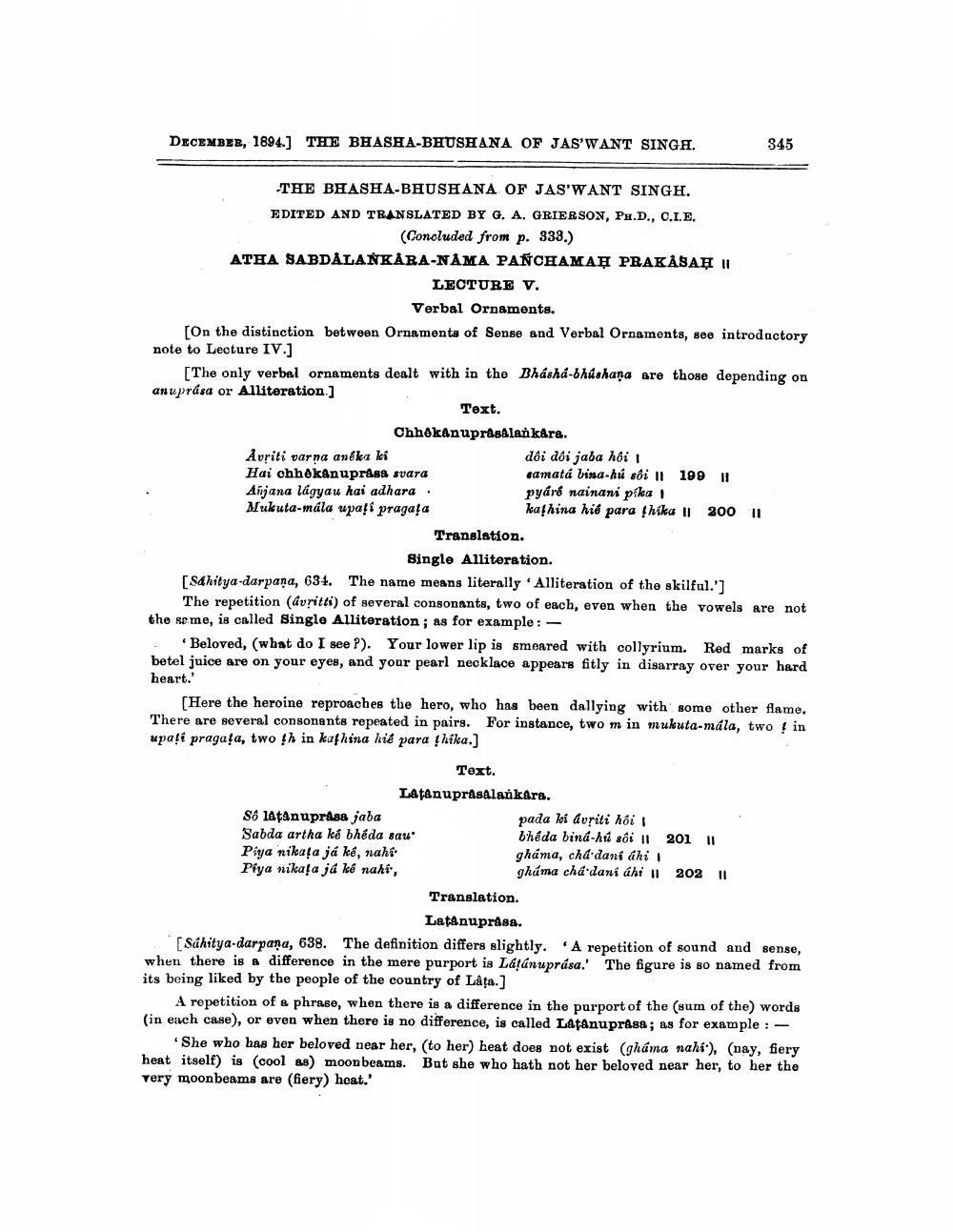________________
DECEMBER, 1894.] THE BHASHA-BHUSHANA OF JAS'WANT SINGH.
345
THE BHASHA-BHUSHANA OF JAS'WANT SINGH. EDITED AND TRANSLATED BY G. A. GRIERSON, PH.D., C.L.E.
(Concluded from p. 333.) ATHA SABDÅLANKÅRA-NAMA PANCHAMAPRAKÅSAŢII
LECTURE V.
Verbal Ornaments. [On the distinction between Ornaments of Sense and Verbal Ornaments, see introductory note to Lecture IV.]
[The only verbal ornaments dealt with in the Bháshá-bhúshana are those depending on anuprása or Alliteration]
Text.
Chhokanuprasalankara. Avriti varna anéki ki
đôi đôi jaba hội | Hai chhokanuprasa svara
camata bia -hú sồi || 199 | Anjana lágyau hai adhara.
pyáré nainani pika 1 Mukuta-mála upali pragaļa
kashina hié para hika !! 200 11 Translation.
Single Alliteration. Sahitya-darpaņa, 634. The name means literally Alliteration of the skilful.')
The repetition (avritti) of several consonants, two of each, even when the vowels are not the some, is called Single Alliteration; as for example: -
Beloved, (what do I see ?). Your lower lip is smeared with collyrium. Red marks of betel juice are on your eyes, and your pearl necklace appears fitly in disarray over your hard heart.
[Here the heroine reproaches the hero, who has been dallying with some other flame. There are several consonants repeated in pairs. For instance, two m in muluta-mála, two ! in upali pragaļa, two fh in kafhina hié para thika.)
Text.
Lafanuprasalankara. Só latanuprasa jaba
pada ki auriti hồi | Sabda artha ke bhéda sau
| bể da bina-ha sổi || 201 II. Piya nikafa jáké, nahi
gháma, cha dani dhi Piya nikaa ja ké nahi,
gháma chd dani áhi 11 202 11 Translation.
Latanuprasa. [Súhitya-darpana, 638. The definition differs slightly. A repetition of sound and sense, when there is a difference in the mere purport is Látánuprása.' The figure is so named from its being liked by the people of the country of Lata.]
A repetition of a phrase, when there is a difference in the purport of the sum of the words (in each case), or even when there is no difference, is called Lafanuprása; as for example: -
She who has her beloved near her, (to her) heat does not exist (gháma nahi'), (nay, fiery heat itself) is cool as) moonbeams. But she who hath not her beloved near her, to her the very moonbeams are (fiery) hoat.'




